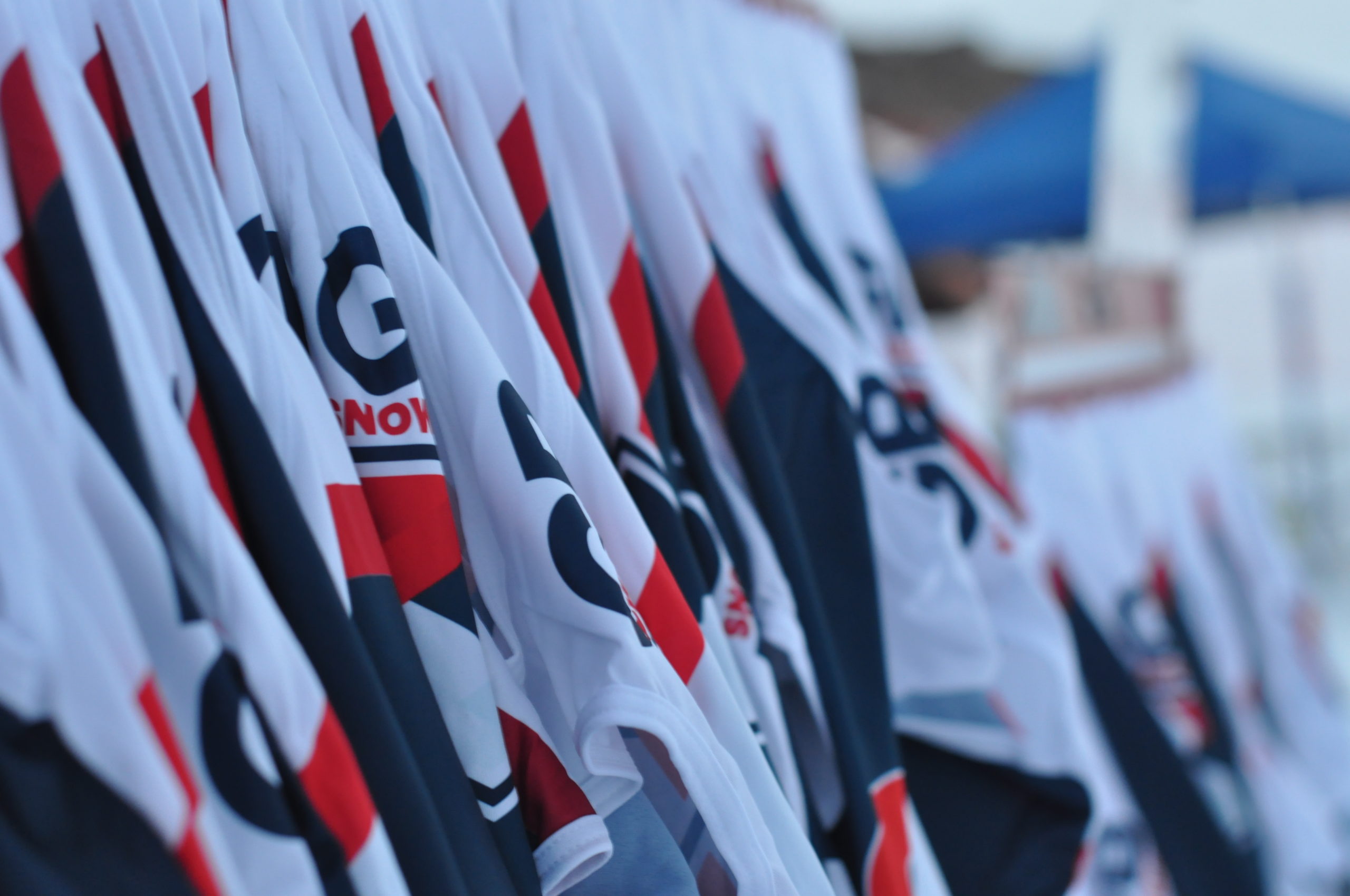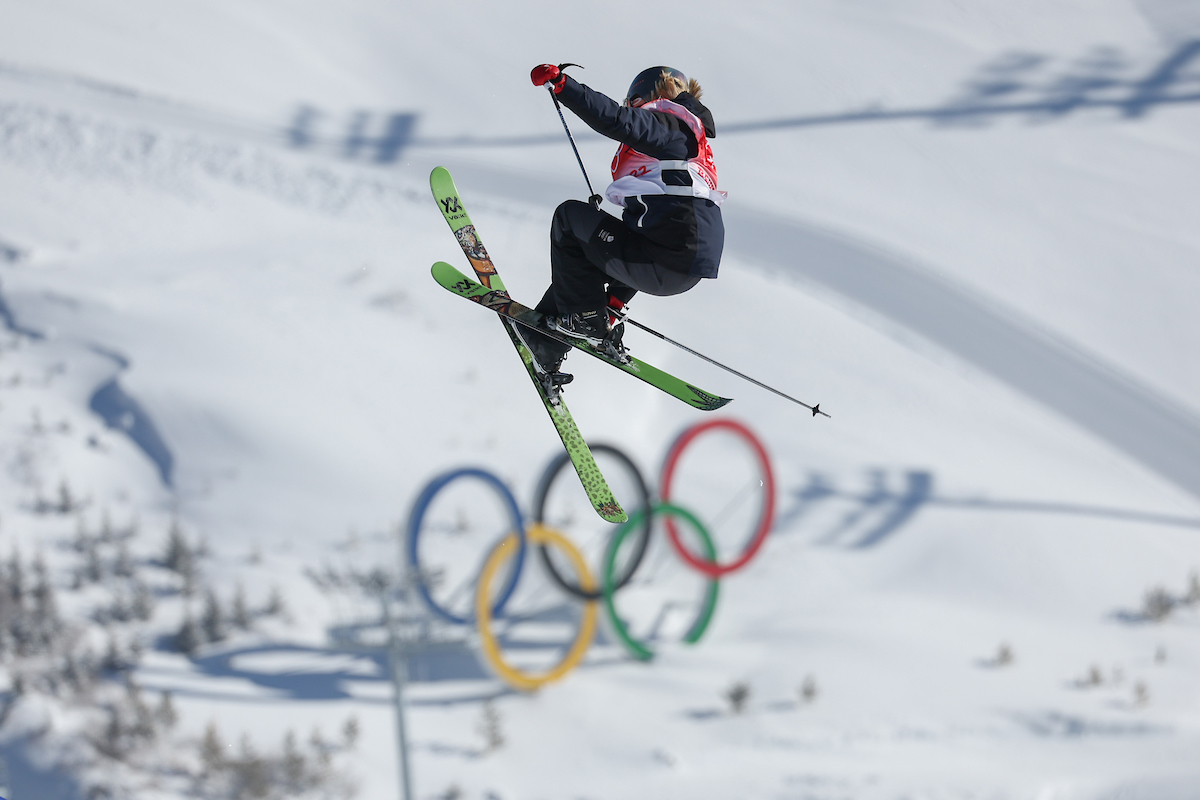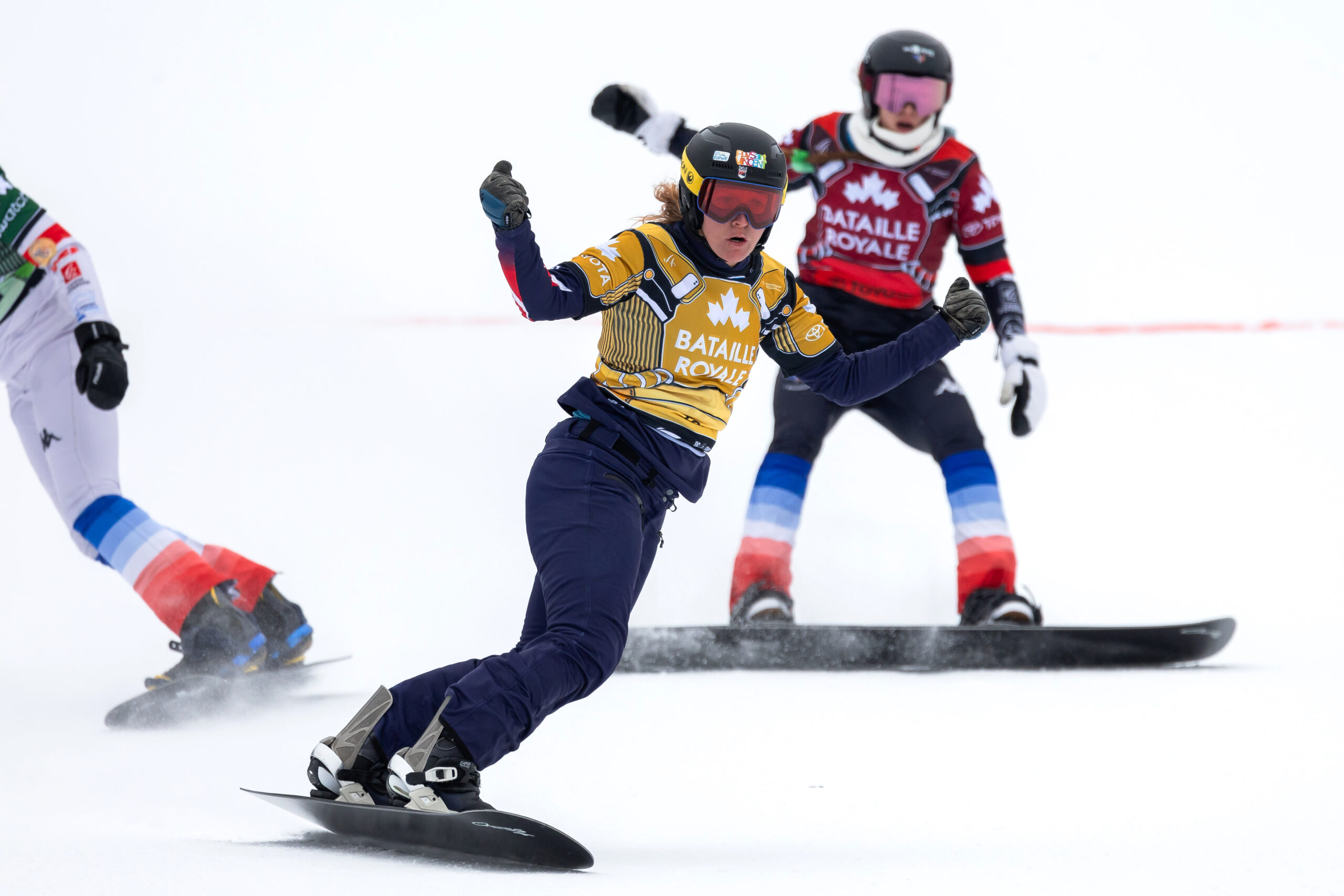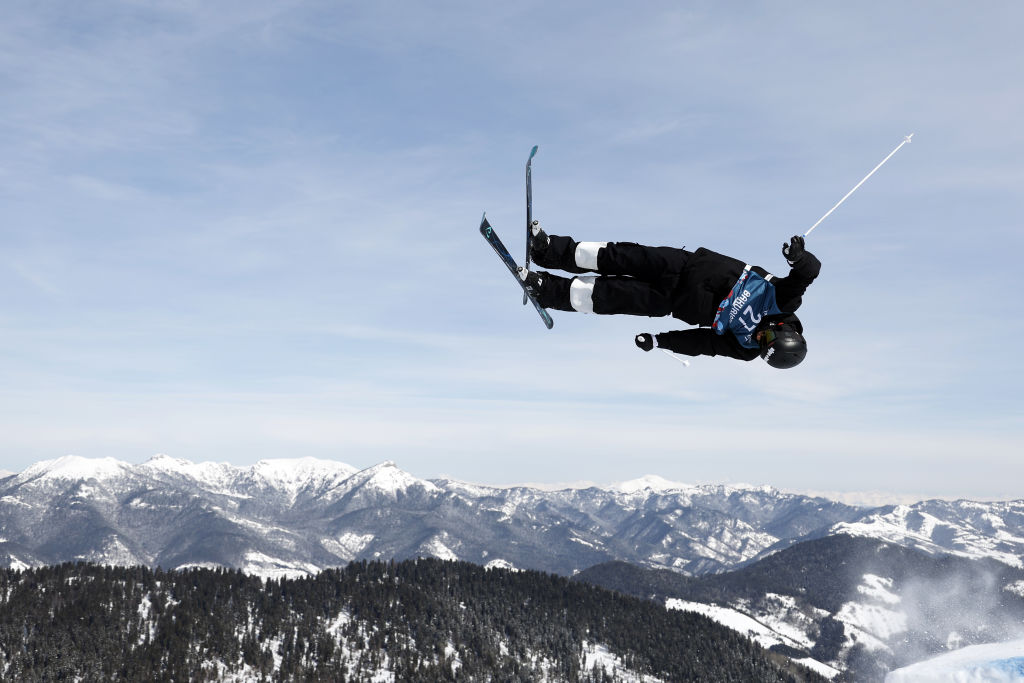
“Coming back from Beijing was a real wake-up call”
With the new season just weeks away, we caught up with GB Snowsport Chief Executive, Vicky Gosling, to talk about the impact of last year’s record-breaking achievements, the lasting impact of the Beijing Olympic and Paralympic Winter Games, and the reasons she’s so optimistic about the future of British skiing and snowboarding.
Further Reading:
With the benefit of a few months’ reflection, how do you look back at last season and what the team achieved?
When I look back at last season, I just think it was incredible. If you think about it, we’ve now got twelve disciplines under the umbrella for GB Snowsport, and every single discipline medalled, at a minimum of World Cup level, which was amazing. Then you think about the fact it was a World Championships year and there we were winning World Championships medals in both the Olympic side of the house and the Paralympic side of the house. I think we’ve just taken ourselves to a completely different level, and this is British firsts. We’re changing history.
So, when I reflect on last season, I just think it was incredible and I’m so proud of what the team achieved, both the athletes and the staff behind it.
With that achievement, we can’t also help but think about what happened the year before. There was some disappointment from Beijing, that season had all its complications. Now you’ve had that time to reflect, what do you think was behind the turnaround in fortunes that we saw last year?
I think coming back from Beijing we had a real wake up call. It was incredibly difficult. To go into Beijing on the backdrop of a couple of years of covid along with the restrictions brought on by Brexit and how much time we could spend in Europe actually training, and it’s that time on task that’s really important for our athletes. So, coming back, it was like “what can we do differently?”.
We obviously restructured. We had to really focus in on how we exploit the opportunity now because there’s always great learnings when you fail. You get up, you look back, you reflect, and you learn from that. So, it was all about, “okay, where can we put our money to really ensure that we are achieving the best results that we possibly can?” We know we’re blessed with the talent, so it’s all about asking “how do we focus that talent on succeeding?”.
And I think we did that particularly well. The staff, looking at the sport science and medicine part of the house, that had a real focus this time around. Our Head Coach, Pat Sharples, really sharpened up our focus on where we could be; it was quite brutal, because we lost funding for Alpine, Cross-Country, and Para Nordic and that was hard.
We have still managed to move forward with those teams, but on the Freestyle side where the funding has gone into the World Class Programmes, that’s where we’re reenergised, refocused with a laser sharp focus on where the money’s being spent, and I think that’s reaped the rewards and the benefit.
It’s been a few months since the last World Cup. How have you been using the break in between seasons?
When you’re in the season, it’s frenetic. We’ve got a really small team and with a tiny team it’s difficult to get much downtime, however we really do try to ensure that the staff get a rest. Of course, there’s never any time out per se for the athletes because they train all year around, so where they’re training all year round it’s really important that the back office is supporting them, albeit on a reduced scale.
In a World Championship year, that scale is really high, but beyond that the scale comes down, so we look to use that time well. We look at what does the next season bring, we review the learnings from the previous season. In particular, where we’ve succeeded, how do we capitalise on that? And then how do we do things better, because there are always so many learnings in this environment.
People will know we have a lot of athletes out of continent this summer because of the conditions, and because of the challenges. How much of a challenge is that for you as the head of the organisation?
It’s really challenging. We have to find a balance. We’re looking at how do we be more sustainable and, at the same time, because of the impacts of climate change, we have to take responsibility and be accountable to do the right things. If we’re being honest and pragmatic about it, the impact of climate change in Europe and on the glaciers is significant, and that causes us to have to go further afield, which means budgeting to allow for that additional cost and get the athletes over there.
Clearly, the further afield the athletes are, especially with athletes heading out to the southern hemisphere, the more complications can arise. They’re further away, so if there’s any injuries the logistics are always slightly more challenging, and the costs go up, so we have to be thinking consistently about how we accommodate that.
Because we’re very small in terms of how we operate, we’re very agile, we’re very performance focused, and so everything goes on how do we get the additional bang for our buck with a performance lens on it?
What are your hopes for the season ahead?
We went from Beijing with a really disappointing Olympic result period – the Paralympics was a different story – into a season which we’ve all seen just reaped incredible rewards; the best season in British history. Now, what we really need to do is to consolidate upon those performances, learn from the success, and hopefully improve upon them. But consolidation is going to be really, really important.
Also, if you think about it, Milan-Cortina is practically around the corner. It’s 2026, but that time flows really, really quickly. What we also need to do is make sure we get the right tricks and skills and the right level of practice in the bag, so that when Milan-Cortina comes around we’re really ahead of the game. Going into Beijing it was a different story; we didn’t get that time on task to probably be as advanced as we wanted to be, so now’s time to consolidate on the previous season’s performance, move forward and, hopefully, do better.
The age profile in the squads is young. There are some really young athletes in those World Cup squads. Is that part of the strategy, are we looking for a younger team, or does it just happen that we’ve got this burgeoning young talent coming through at the moment?
It’s a good combination. The reality is we’ve had some fantastic talent in the past and we’ve seen that talent going through, but we were always very nervous that we needed to ensure we had strength in depth as well. We’re not just planning for Milan-Cortina, we’re planning for 2030 and beyond, and the cohort of athletes that are coming through now we know will be in the system, fingers crossed, ready to compete for 2030. So, we always have to look a minimum of eight years hence, otherwise we’ll just end up with no pipeline of talent. So, it’s a combination of seeking the talent out, the talent finding us, but also making sure we’re futureproofing our sport for years to come.
It’s extremely exciting – I don’t think we’ve been blessed with such strength in depth in terms of age demographics, so it’s a very exciting time for us.
Anything you’d like to say to fans going into the new season?
For us, it’s all about tuning in. The more eyeballs we have on our athletes, the better. We need to make sure the ways we engage are relevant, that it’s exciting, and it’s the content you want to see. We’re always looking for feedback and for ways to support the fanbase, because without the fans we would really struggle. It’s so important we have that fanbase; thank you for the support so far. Hopefully together we can grow that in the season to come.
 Share
Share

